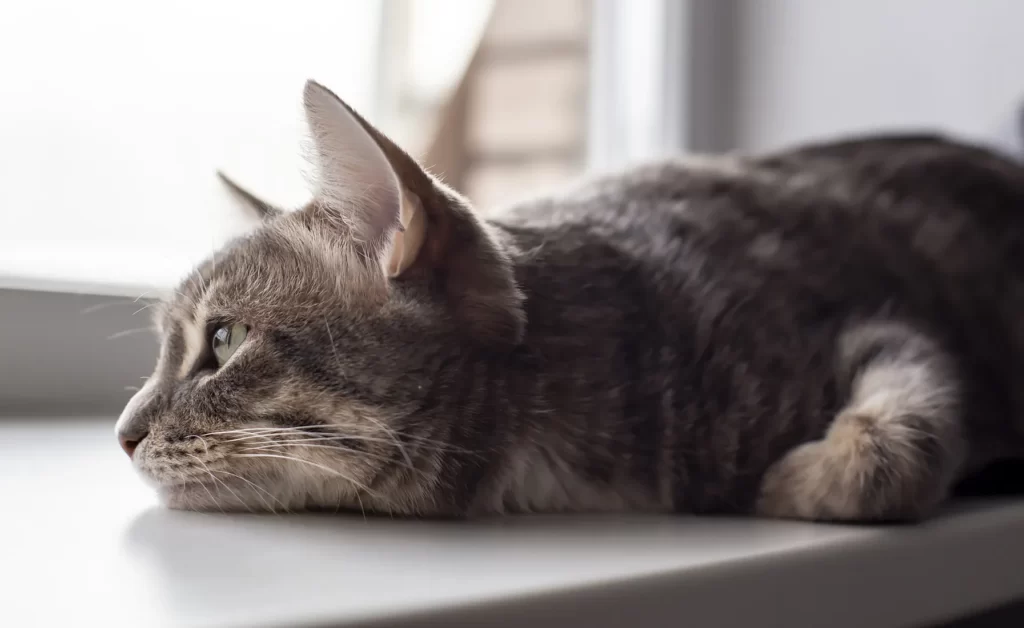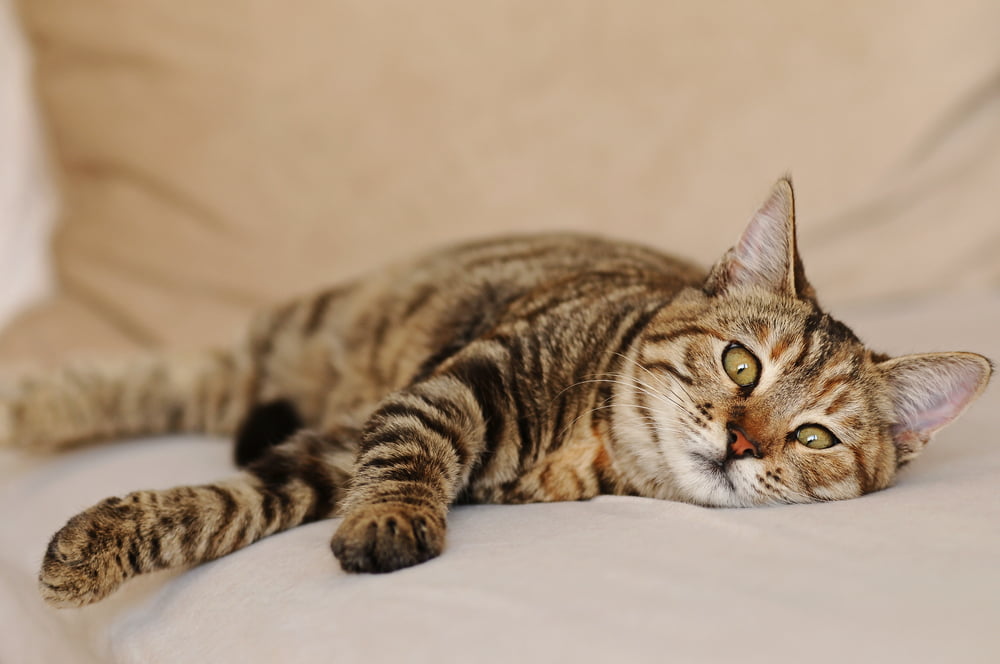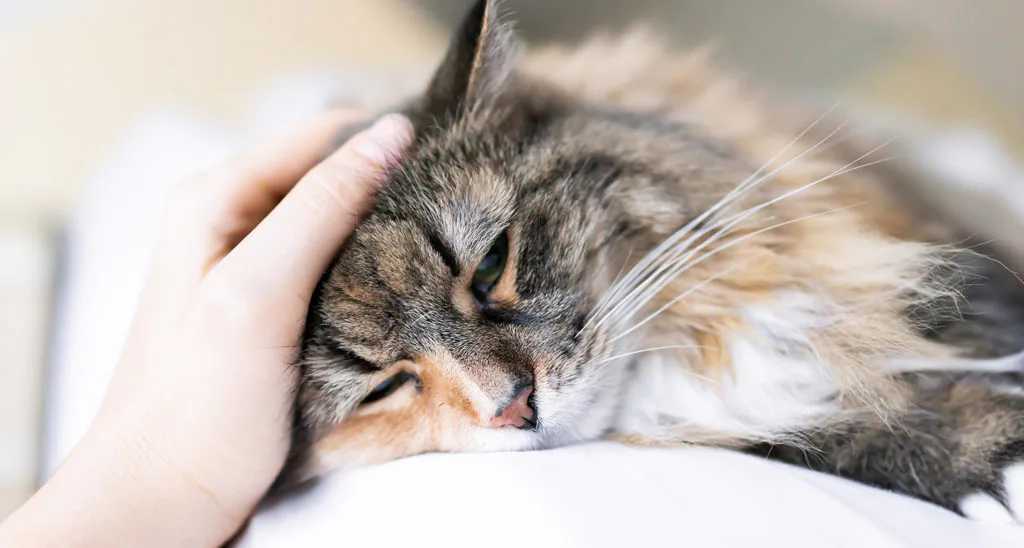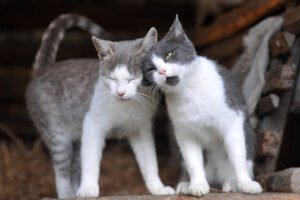How to Comfort a Mother Cat Who Lost Her Kittens?

Losing a litter of kittens can be a devastating experience for a mother cat, and it’s not uncommon for her to feel grief and sadness. As a pet owner or caregiver, it’s important to understand how to identify the signs of grieving in a mother cat and know how to comfort her during this difficult time. In this article, we’ll explore the topic in detail and offer some tips on how to comfort a mother cat who has lost her kittens.
Do Cats Get Sad if Their Kittens Die?
Yes, cats do experience emotions and can feel sadness and grief if they lose their kittens. A mother cat will often go through a period of mourning after the loss of her kittens, and this can manifest in a variety of ways. Understanding the signs of grieving in a mother cat is an essential first step in providing her with comfort and support during this difficult time.
However, the personality of the mother cat plays a big role in whether it actually grieves or not. There’s a chance that your cat will exhibit absolutely no signs of grief. But you also need to be very careful, and observe your cat constantly. Some cats just hide their grief better, so you might think everything is OK, whereas it might really not be.

How to Identify if a Mother Cat Is Grieving
There are several signs to look for to identify if a mother cat is grieving. These include:
- Loss of appetite: Refusal to eat or drink for an extended period is a common sign of grief in mother cats who have lost their kittens.
- Lethargy: Mother cats may appear listless, lethargic, and uninterested in their surroundings when grieving the loss of their kittens.
- Vocalization: Meowing loudly and persistently is another sign of grief that mother cats may exhibit after losing their kittens. They may also display other vocalizations, such as crying or moaning.
- Aggression: Mother cats may become aggressive towards other pets or humans when grieving. They may hiss, growl, or scratch as a way to protect themselves and their remaining kittens.
- Excessive grooming: Over-grooming is a common behavior among grieving mother cats, which can lead to hair loss and skin irritation.
- Searching: Mother cats may go on a frantic search for their missing kittens, even if they are no longer present. They may pace back and forth, scratch at walls or furniture, or try to dig through carpets or bedding.
It’s important to note that grieving behaviors in mother cats can vary depending on their personalities and the circumstances surrounding the loss of their kittens. Some mother cats may exhibit all of these signs, while others may show only a few. It’s essential to understand and observe these behaviors to provide comfort and support to a grieving mother cat.

How to Comfort a Mother Cat Who Lost Her Kittens
Losing a litter of kittens can be a traumatic experience for a mother cat. As a pet owner, it is essential to understand how to provide comfort and support to a mother cat who has lost her kittens. Here are seven ways to comfort a mother cat who lost her kittens:
Show Love and Affection
After losing her kittens, a mother cat may feel alone and vulnerable. To comfort her, offer her love and affection in the form of petting, cuddling, and gentle stroking. This will help her feel comforted and reassured that she is not alone. Additionally, offer her plenty of attention and speak to her in a soft, soothing voice.
Provide a Safe and Comfortable Environment
Create a safe and comfortable environment for the mother cat. She may feel more comfortable if she has a quiet, secure place to rest and recover. Consider providing a warm and cozy bed, and a space where she can relax and take a break from the outside world. Providing her with a comforting space can help her cope with her grief.
Keep Her Routine Consistent
A mother cat may find comfort in sticking to her routine, even after the loss of her kittens. Keeping her routine consistent can help her feel more in control and secure. Keep feeding times, playtime, and other activities on schedule. A consistent routine will provide her with a sense of familiarity and stability.
Provide Distractions
To help take her mind off her grief, provide the mother cat with plenty of distractions. Provide her with interactive toys, such as puzzle feeders or scratching posts. These toys will keep her mentally stimulated and help her pass the time. Additionally, providing her with some catnip may help her relax and feel more at ease.
Offer Plenty of Attention
Offer plenty of attention to the mother cat, but also give her space when she needs it. Pay attention to her body language, and give her space if she seems overwhelmed or stressed. Offering her plenty of attention will help her feel loved and cared for during this difficult time.
Keep Her Active
While it is important to let the mother cat rest and recover, it is also essential to keep her active. Regular exercise and playtime can help her feel more energized and help her release pent-up emotions. Consider taking her for a walk or providing her with interactive toys to play with.
Provide a comfortable and secure carrier or crate:
Sometimes, a mother cat who has lost her kittens may feel more comfortable and secure in a confined space, such as a carrier or crate. This can provide her with a sense of security and help her feel safe while she is recovering from her loss. Make sure the carrier or crate is spacious enough for her to move around comfortably and provide her with soft bedding to help her feel cozy.
Introducing a new playmate or companion
Introducing a new playmate or companion for the mother cat can be helpful in providing comfort and distraction from her grief. However, it’s important to take the introduction process slow and introduce the new cat or kitten gradually to ensure they get along well and don’t cause additional stress for the grieving mother cat.
Providing the Mother Cat with Companion Kittens
Another way to comfort a mother cat who has lost her kittens is to provide her with some kittens from another litter. This can help fill the void left by the loss of her previous litter and give her a sense of purpose and maternal instinct. However, it’s important to introduce the kittens slowly and carefully to ensure that the mother cat accepts them and does not become aggressive towards them. Keep in mind though, that this method is a little high-risk. Might work, might not.
Seek Professional Help
If the mother cat continues to show signs of grief and distress, it may be time to seek professional help. Your veterinarian can provide you with additional advice and support on how to help your mother cat cope with her grief. Additionally, they may suggest medications or other treatments to help her manage her emotions.
Conclusion
Losing a litter of kittens can be a heartbreaking experience for a mother cat, and it’s important for pet owners and caregivers to understand how to identify signs of grief and how to comfort the cat during this difficult time.
To comfort a grieving mother cat, provide love and affection, a safe and comfortable environment, a consistent routine, distractions, attention, and activity. If the mother cat continues to show signs of distress, it may be necessary to seek professional help. Remember to be patient and understanding during this difficult time and provide the mother cat with the support and care she needs to cope with her loss.


